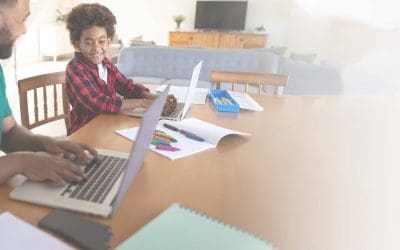Boys and Girls Learn Differently, Here’s How
Teaching children from a young age about literacy will allow them to develop a positive attitude towards reading, writing and language.
 Children learn in different ways, by observing children daily you will discover how they learn best, is it through hands on, visual, repetition or through the use of technology.
Children learn in different ways, by observing children daily you will discover how they learn best, is it through hands on, visual, repetition or through the use of technology.
It is important that you role model to your children a positive attitude when it comes to literacy. There are a few simple ways to demonstrate this:
- Become excited about reading books
- Talk about the books that you read
- Engage in writing daily in front of your children
- Read books that focus on things that interest your child
When reading books to young children it is important to be expressive with your words, use different voices for characters, the more animation you use the more engaged children becomes.
If your child is looking at pictures in a book, ask them if you can read them the book or ask them to “read” you the book.
 It is common for most boys to struggle sitting down to listen to a story; this is because they learn differently than girls. Boys learn “in space”, they learn better through video games, movement, pictures and constructing things. In order to foster their learning style try to make up stories that will foster the topic in which you are teaching or have them act things out, provide them with visual’s to assist with teaching, have the boys construct things with blocks, drawing etc.
It is common for most boys to struggle sitting down to listen to a story; this is because they learn differently than girls. Boys learn “in space”, they learn better through video games, movement, pictures and constructing things. In order to foster their learning style try to make up stories that will foster the topic in which you are teaching or have them act things out, provide them with visual’s to assist with teaching, have the boys construct things with blocks, drawing etc.
Additionally, you can physically take children on trips or outdoors to foster their learning. This will allow boys and possible some girls to pay closer attention by doing something and fostering their learning style.
Boys tend to fidget and act on impulses more as they do not have as much serotonin as girls do.
Girls learn better through studying, reading and writing, as their verbal memory storage is larger than boys, this is due to their hippocampus being larger and develops faster than in boys. Girls are also able to sit for longer periods of time and focus. Typically, girls also have a larger vocabulary than boys do from a young age, this assist’s girls in school as they develop and can pick up some things faster than boys. Girls however, can require more assistance with becoming involved in physical education.
Girls must be encouraged to play with toys and become involved in activities, enrol your daughters in sports, this will boost their confidence.
 For children 4 years and older you can “play” with words to extend language such as:
For children 4 years and older you can “play” with words to extend language such as:
- Changing words in songs
- Rhyme with words
- Make up funny sounding words and change the sounds of the words
From my personal experience with having boys, it may be important for you to speak to your child’s teacher to discuss different ways to foster your child’s development.
I found that my oldest son struggled in school with learning his alphabet and numbers through rote memory and sitting on the carpet for a learning circle. The teachers were concerned; I was until I was invited to observe him at school during this literacy period.
Once I noticed how she was teaching, I realized that he was not paying attention and I tried to teach him at home in a different way, using chalk board, having him trace letters using the ipad and drawing lines from the capital letter to the lower case letter on the ipad. He knew the letters and was able to trace them and appears to be picking things up now.
I do limit the use of the ipad as he does have to adjust to doing worksheet and learn through sitting down at circle time.
However, in my opinion there must be flexibility to foster boys and girls learning styles in the school system.











